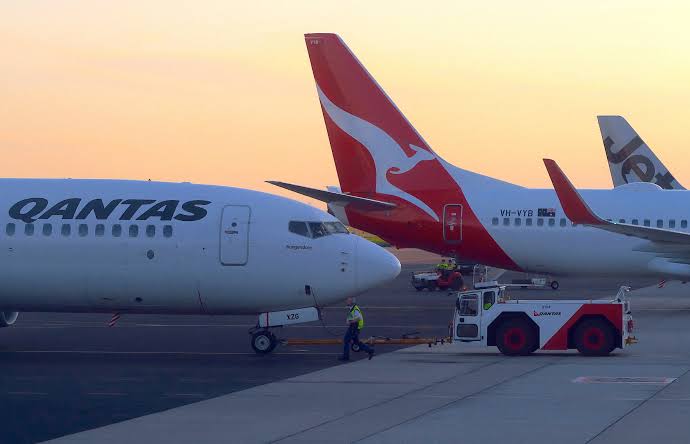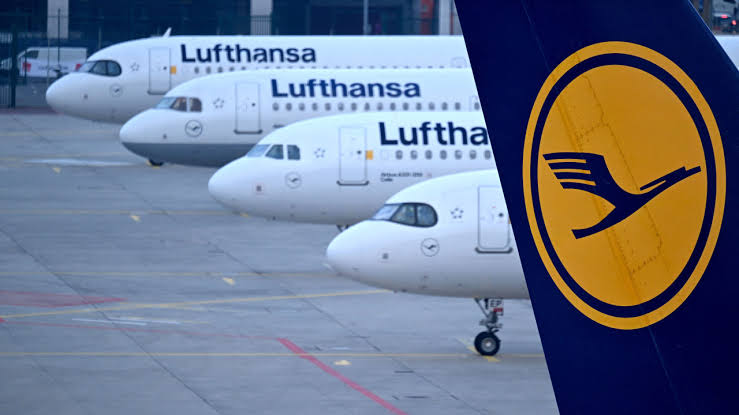Qantas Airways Grounds All Flights in May Following Technical Outrage
Qantas Airways Grounds All Flights in May Following Technical Outage
Introduction:
In a dramatic turn of events, Qantas Airways has announced the grounding of all flights scheduled for May 2025 following a significant technical failure. The Australian flag carrier, known for its strict adherence to safety and operational excellence, is facing a massive disruption that has left thousands of passengers stranded across the globe. This unprecedented move comes amid growing concerns over the airline’s ability to maintain its reputation for reliability and service quality.
The Nature of the Technical Outage
On April 23, 2025, Qantas experienced a critical systems failure that affected its entire flight network. The technical issue reportedly originated from a malfunction in the airline’s flight control and communication systems, which are crucial for coordinating the movement of aircraft both on the ground and in the air. While the airline has yet to fully disclose the specific nature of the fault, industry experts have speculated that it may involve outdated software or hardware components within their flight operation systems.
The outage led to immediate cancellations of several domestic and international flights, but the true extent of the problem became clear when it was announced that the airline would cease all flight operations for the entire month of May. The grounding of flights is a precautionary measure, intended to allow Qantas engineers and technical teams to resolve the issue and ensure that its systems are fully operational before any further flights take place.
Impact on Passengers and Global Operations
The decision to ground all flights in May is a major blow not only to Qantas but to the global travel industry. Thousands of passengers have been left stranded at airports, with little to no immediate solutions available. For many, this disruption means missed business meetings, family gatherings, and holiday plans. Additionally, Qantas’ decision to cancel flights has caused a ripple effect in the global aviation sector, as the airline is a major player in international routes connecting Australia to the rest of the world.
Reports from travelers affected by the cancellations have revealed frustration and confusion. Passengers have taken to social media to vent their displeasure, with many criticizing the airline for its lack of communication and inadequate compensation for the inconvenience. Some travelers have reported being rerouted through other airlines or asked to reschedule their flights for later in the year, but others have found themselves stranded without a clear timeline for when they will be able to return home.
For many frequent flyers and those who depend on Qantas for long-haul travel, this grounding represents a serious disruption to their travel plans, with no definitive resolution in sight.
Qantas’ Response to the Crisis
In response to the grounding of flights, Qantas has issued a formal statement apologizing for the inconvenience and assuring passengers that the airline is doing everything in its power to resolve the situation. The airline has promised to provide full refunds or rebooking options for all affected travelers, although many passengers have expressed dissatisfaction with the speed at which these compensations are being processed.
Qantas CEO, Alan Joyce, acknowledged the severity of the situation in a press conference held on April 24, 2025. “We understand the frustration this has caused for our passengers, and we take full responsibility for the disruption. Our team is working around the clock to identify and resolve the technical issues. Safety and security are always our top priority, and we will not resume flights until we are confident that all systems are functioning properly.”
Additionally, Qantas has promised to enhance its customer service operations during this crisis, with dedicated support teams available to assist travelers with rebooking and accommodation. The airline has also pledged to reimburse expenses related to hotel stays, meals, and transportation for those stranded due to the flight cancellations.
The Road to Recovery: What Happens Next?
As the airline begins the long process of resolving its technical issues, the future of Qantas’ operations remains uncertain. The grounding of all flights for an entire month is an extraordinary step, and it will undoubtedly have a long-term impact on the airline’s reputation and financial stability. The aviation industry is notoriously competitive, and Qantas’ decision to halt its operations for an extended period of time may open the door for rival airlines to capitalize on its absence.
Moreover, the grounding is likely to have significant financial implications for Qantas. The airline is already facing mounting pressure from investors and stakeholders to resolve the crisis swiftly. Financial analysts predict that the grounding could result in losses in the hundreds of millions of dollars, not just from lost revenue but from the cost of repairs and system upgrades necessary to fix the underlying technical problems.
In the coming weeks, Qantas will likely face increased scrutiny from regulators and industry watchdogs as investigations into the technical failure continue. While the airline has committed to resolving the issue as quickly as possible, the long-term damage to its reputation may take years to repair. For now, the company’s immediate priority is ensuring the safety and comfort of its affected passengers, while also working to restore its flight operations to full capacity.
The Broader Implications for the Aviation Industry
Qantas’ technical failure serves as a reminder of the vulnerability of modern aviation systems and the need for continuous investment in technology and infrastructure. Airlines across the globe have long relied on complex software and hardware systems to manage flight schedules, crew assignments, and communication with air traffic control. A failure in any one of these systems can cause significant disruptions, as evidenced by Qantas’ recent issues.
Moreover, the grounding of Qantas flights could lead to a re-evaluation of safety protocols and backup systems within the industry. Airlines may be forced to reassess the reliability of their systems and explore ways to prevent similar outages in the future. This incident highlights the need for redundancy and resilience in critical operational areas.
Conclusion
Qantas Airways’ decision to ground all flights in May 2025 in response to a significant technical outage is a momentous event in the world of aviation. While the airline’s priority is to resolve the issue and ensure the safety of its passengers, the broader implications of this crisis are far-reaching. Passengers are left grappling with uncertainty, and Qantas faces the difficult task of restoring both its operations and its reputation.
As the airline works to address the technical failure, the aviation industry as a whole will likely take heed of the lessons learned from this incident, prompting a reevaluation of how airlines can better safeguard against such disruptions in the future. For now, the focus remains on ensuring that Qantas can emerge from this crisis stronger, with a renewed commitment to operational excellence and passenger safety.






